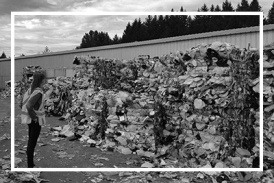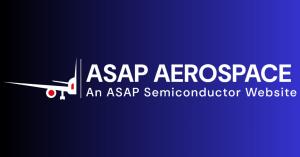ASAP Semiconductor to Address Rising Demand for Aircraft Avionics Parts with an Expansion of Offerings on ASAP Aerospace
With rising requisitions & shifting market demand, ASAP Semiconductor aims to meet global customer needs for aircraft avionics parts through ASAP Aerospace.
ANAHEIM, CA, UNITED STATES, June 3, 2025 /EINPresswire.com/ -- In the face of rising requisitions across purchasing platforms and shifting market needs, ASAP Semiconductor has announced a new initiative focused on expanding the aircraft avionics parts listed on its website, ASAP Aerospace. Through ASAP Aerospace, the distributor’s global customer base is currently provided access to commercial and military aviation solutions that range from standard hardware and fasteners to complex electronic and electromechanical parts. With this current effort, the company states that it will specifically be targeting critical avionics components that have been identified as most in need, leveraging its supply chain network to bring in options from leading manufacturers like Honeywell, Collins Aerospace, Thales Group, L3 Harris Technologies, and Garmin. Simultaneously, the ASAP Aerospace website will also face updates to bolster search capabilities as new items are listed, streamlining service.
As per ASAP Semiconductor, targeted avionic products will include those for integrated flight decks, flight management systems (FMS), weather radar systems like the IntuVue RDR-7000, traffic collision avoidance systems (TCAS), enhanced ground proximity warning systems (EGPWS), flight recorders, cockpit displays, autopilots & indicators, and other various navigation & communication systems. The rising demand for these advanced forms of avionics has been driven by several global trends, including increasing air traffic volume, stricter airspace regulations, and the widespread adoption of digital technologies that improve situational awareness. Systems like TCAS and EGPWS are also now standard safety requirements for many forms of aircraft, while integrated flight decks have become a staple of design for commercial and military platforms alike. Additionally, fleet operators are accelerating retrofit and upgrade programs to extend the life cycle of aging aircraft in a cost-effective manner, which requires a reliable source of avionics parts from trusted manufacturers. All of this has been further intensified by ongoing economic volatility and geopolitical uncertainty, which have disrupted traditional supply chains and lengthened lead times across the industry.
In response to these challenges, ASAP Semiconductor is carrying out a data-first inventory management strategy to stock up on various part numbers and avionic brand options that have been identified through its efforts. By closely monitoring requisition patterns, market trends, customer purchase behaviors, and ongoing project requirements, the company attests that it will be able to better align its inventory with developing industry requirements. Whether serving airline maintenance crews, OEMs, or government contractors, ASAP Semiconductor affirms that its goal is to position ASAP Aerospace as a single-source platform for complex avionics needs, with options for modern and legacy platforms alike.
In tandem with product expansion efforts, ASAP Semiconductor is also seeking to enhance ASAP Aerospace’s digital infrastructure and resources to accommodate all inventory changes. AS new part numbers are added, ASAP Aerospace will be refined with organized navigation tools and catalogs that allow searches to be conducted based on the item’s manufacturer, part number, NSN, CAGE Code, and other standardized designations. Catalog sections focusing on specialized avionics categories like FMS units, cockpit displays, and navigation & communication systems will also be improved with new technical data and resources to help customers locate relevant solutions quickly and confidently.
These enhancements are also mirrored by internal investments that include improvements in fulfillment operations, staffing, and global customer support. ASAP Semiconductor is continuing to scale its workforce as its operations expand, with particular focus placed on its sales and logistics personnel. With a focus on quality control, compliance, and customer satisfaction, the company’s strengthened team will provide hands-on support to customers as they make purchases and inquiries on ASAP Aerospace and other platforms owned by the distributor.
“Operating across numerous verticals, we understand that modern avionics are the backbone of safe and efficient aircraft operations in our modern day,” said Joe Faruqui, CEO of ASAP Semiconductor. “By expanding our offerings on ASAP Aerospace and refining the customer experience, we are working to ensure that organizations across the globe have access to the critical components they need.”
Through the integration of an expanded avionics inventory, improved cataloging infrastructure, and reinforced customer service capabilities, ASAP Semiconductor is preparing to meet the escalating demands of the global aerospace sector. Future announcements are expected in the coming months as the distributor continues to roll out additional enhancements across its platforms, reinforcing its position as a dependable channel for sourcing aviation solutions. For more information about ASAP Aerospace and to explore available avionics parts, visit https://www.asap-aerospace.com.
About ASAP Semiconductor
ASAP Semiconductor is a parts distributor specializing in sourcing and delivering a diverse range of components for aerospace, defense, IT hardware, and industrial automation applications. Through purchasing platforms like ASAP Aerospace, ASAP Semiconductor connects its customer base to a comprehensive inventory of high-quality aviation and marine items that are sourced from industry leaders. With team members available by phone or email, interested customers are always welcome to get in touch to discuss requirements.
Tony Meredith
ASAP Semiconductor
+1 714-705-4780
tony|asapsemi.com| |tony|asapsemi.com
Visit us on social media:
LinkedIn
Instagram
Facebook
X
Legal Disclaimer:
EIN Presswire provides this news content "as is" without warranty of any kind. We do not accept any responsibility or liability for the accuracy, content, images, videos, licenses, completeness, legality, or reliability of the information contained in this article. If you have any complaints or copyright issues related to this article, kindly contact the author above.
Precision and Power: Screw Pump Market to Accelerate with a CAGR of 5.0% Increasing Industrial Applications
Revolution in Digital Therapy: Telerehabilitation Market Worth $5,400 million in 2024, Poised for 9.2% CAGR Growth
Bron & Claude Executive Director Bronson Burke to Speak at EPC Show 2025
Kalendarium
Więcej ważnych informacji
 Jedynka Newserii
Jedynka Newserii

 Jedynka Newserii
Jedynka Newserii

Handel

Ze względu na różnice w cenach surowce wtórne przegrywają z pierwotnymi. To powoduje problemy branży recyklingowej
Rozporządzenie PPWR stawia ambitne cele w zakresie wykorzystania recyklatów w poszczególnych rodzajach opakowań. To będzie oznaczało wzrost popytu na materiały wtórne pochodzące z recyklingu. Obecnie problemy branży recyklingu mogą spowodować, że popyt będzie zaspokajany głównie przez import. Dziś do dobrowolnego wykorzystania recyklatów nie zachęcają przede wszystkim ceny – surowiec pierwotny można kupić taniej niż ten z recyklingu.
Przemysł spożywczy
Rośnie presja konkurencyjna na unijne rolnictwo. Bez rekompensat sytuacja rolników może się pogarszać

Rolnictwo i żywność, w tym rybołówstwo, są sektorami strategicznymi dla UE. System rolno-spożywczy, oparty na jednolitym rynku europejskim, wytwarza ponad 900 mld euro wartości dodanej. Jego konkurencyjność stoi jednak przed wieloma wyzwaniami – to przede wszystkim eksport z Ukrainy i niedługo także z krajów Mercosur, a także presja związana z oczekiwaniami konsumentów i Zielonym Ładem. Bez rekompensat rolnikom może być trudno tym wyzwaniom sprostać.
Transport
Infrastruktury ładowania elektryków przybywa w szybkim tempie. Inwestorzy jednak napotykają szereg barier

Liczba punktów ładowania samochodów elektrycznych wynosi dziś ok. 10 tys., a tempo wzrostu wynosi ok. 50 proc. r/r. Dynamika ta przez wiele miesięcy była wyższa niż wyniki samego rynku samochodów elektrycznych, na które w poprzednim roku wpływało zawieszenie rządowych dopłat do zakupu elektryka. Pierwszy kwartał br. zamknął się 22-proc. wzrostem liczby rejestracji w ujęciu rocznym, ale kwiecień przyniósł już wyraźne odbicie – o 100 proc.
Partner serwisu
Szkolenia

Akademia Newserii
Akademia Newserii to projekt, w ramach którego najlepsi polscy dziennikarze biznesowi, giełdowi oraz lifestylowi, a także szkoleniowcy z wieloletnim doświadczeniem dzielą się swoją wiedzą nt. pracy z mediami.









.gif)

 |
| |
| |
|